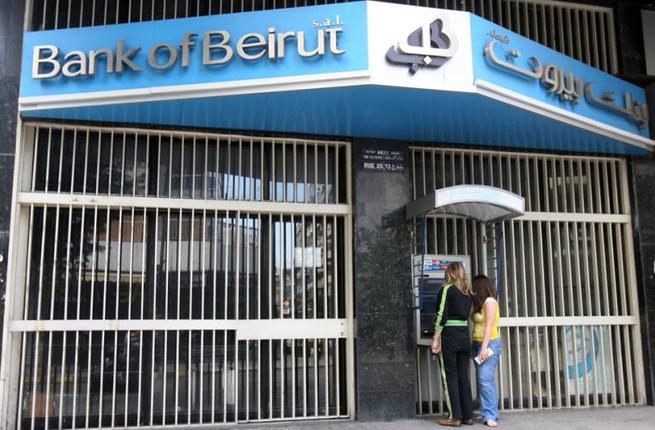
daily star.com.lb
Central Bank Governor Riad Salameh and Lebanese bankers dismissed claims that Gulf nationals are withdrawing their deposits from Lebanon in a sign of solidarity with Saudi Arabia.
Salameh said he has not been contacted by anyone in the Gulf asking to withdraw their deposits over the recent diplomatic row between Lebanon and Saudi Arabia.
“Neither Saudi Arabia nor any other Gulf states contacted me regarding their deposits in the Central Bank,” Salameh told Reuters, accusing the media of “exaggerating” the issue of Riyadh possibly pulling its deposits from Lebanon.
Other bankers interviewed by The Daily Star stressed that they did not record any significant withdrawal of deposits since Saudi Arabia decided to freeze the $4 billion military and police grants to Lebanon to protest what it termed Hezbollah’s blatant intervention in Arab affairs, most notably in Syria and Yemen.
These bankers insisted that the figures of Arab deposits in Lebanese banks are exaggerated and inaccurate, noting that some news media publish numbers without clear reference to sources.
Bankers say the bulk of customer deposits in Lebanon belong to Lebanese nationals, both resident and nonresident.
Salameh also assured that the Lebanese pound is not in danger of plummeting, saying Lebanon’s commercial banks have tools to protect the currency.
“The Lebanese pound is not in danger and the Central Bank and Lebanon’s commercial banks have the necessary tools to protect the stability of the Pound,” he said.
However, the Central Bank chief expressed hope for Lebanon to mend ties with Saudi Arabia.
“I am not hearing any Saudi measures being taken against the economic interests of the Lebanese people,” he added, implying that Saudi moves are only meant to hurt certain people.
Makram Sader, secretary-general of the Association of Banks in Lebanon, told The Daily Star that around 25 percent of the deposits in Lebanese banks belong to Lebanese living outside Lebanon and not to Gulf nationals.
“We don’t have bank accounts according to nationality of depositors but I can assure that we did not see any significant withdrawal from the local banks since the political crisis with Saudi Arabia started,” Sader said.
He added that some people are confusing between nonresidents’ deposits and deposits belonging to other nationalities.
“We don’t have any publication which gives a breakdown on the nationality of depositors,” Sader argued. Citing official statistics at the end of September 2015, Sader explained that less than $32 billion of the total $155 billion deposits belong to nonresidents.
He also disputed some figures which are thrown at random about the special Saudi deposit at the Central Bank.
“The entire special Arab deposits at the Central Bank are $860 million, $200 million of which belongs to Saudi Arabia,” Sader said.
But Sader emphasized that these figures should not be seen as an attempt to belittle the magnitude of the crisis with Saudi Arabia and other Gulf states.
“We should not underestimate the size of the crisis which poses a risk to Lebanon if it is not properly handled,” he said.
“We should also keep in mind that over 400,000 Lebanese work in the GCC states and most of them are living in Saudi Arabia,” he added.
Apart from the Lebanese employees, Sader said there are many Lebanese businessmen who have hundreds of millions of investments in the GCC.
He also pointed out that out of the $8 billion capital inflows and remittances to Lebanon, around $5.5 billion from this injection comes from the GCC.
“Out of the $5.5 billion from the GCC, Saudi Arabia provides half of this amount through remittances from the Lebanese expatriate community,” Sader said.
Economists and experts have warned that if the GCC states decided to expel a large number of Lebanese, this step would have a grave effect on the size of remittances to Lebanon.
In 2015, the value of remittances to Lebanon fell by 27 percent, according to official figures.



